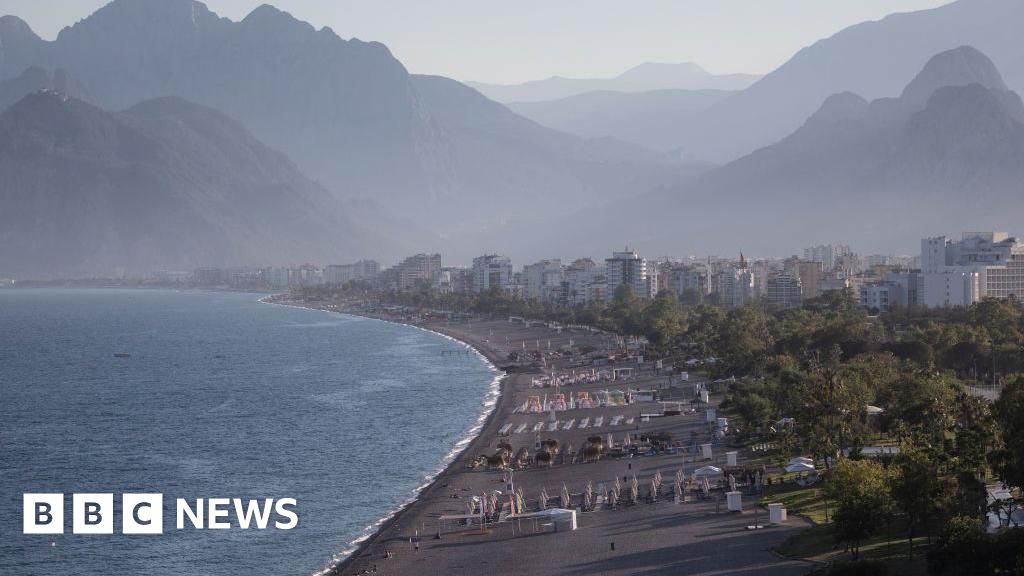The upcoming COP31 climate summit, originally contested by Australia and Turkey as potential hosts, is now expected to be held in Turkey following Australia’s decision to withdraw its bid. This development comes amid ongoing negotiations at COP30, the current United Nations climate conference taking place in Belém, Brazil. The agreement marks a significant compromise between the two countries and has drawn attention due to its unusual arrangement, which departs from the traditional practice of the COP president being from the host nation.
Under UN rules governing the Conference of the Parties (COP), the right to host the 2026 event falls within a group of countries that includes Western European nations, Australia, and others. Both Australia and Turkey had made strong cases to host COP31—Australia proposed the city of Adelaide, while Turkey put forward Antalya. Neither side was initially willing to concede, creating concerns over a potential deadlock. Normally, the COP presidency is held by a representative from the host country who oversees the negotiations and official proceedings. However, after intensive talks at COP30, Australia agreed to support Turkey’s bid to host the main event. In return, Australia’s climate minister will chair the conference negotiations, effectively serving as COP president.
This compromise has surprised many observers due to its novel structure. Australia’s Prime Minister Anthony Albanese described the arrangement as an “outstanding result” in an interview with the Australian Broadcasting Corporation (ABC), emphasizing that Pacific island issues—some of the most vulnerable to the impacts of climate change—would remain “front and centre” in the discussions. Albanese also noted his conversations with key Pacific leaders, including Papua New Guinea’s Prime Minister James Marape and Fiji’s Prime Minister Sitiveni Rabuka, highlighting the ongoing importance of regional concerns.
Despite this, not all Pacific nations have welcomed the outcome. Papua New Guinea’s Foreign Minister Justin Tkatchenko expressed disappointment to the AFP news agency, saying, “we are all not happy” with the resolution. Similarly, Solomon Islands leader Jeremiah Manele told the ABC that he would be “disappointed” if Australia did not secure the hosting rights. These reactions reveal underlying tensions about representation and influence within the Pacific community on climate issues, especially given Australia’s long-standing efforts to position itself as a key partner for Pacific island states.
For those attending COP30 in Belém, the announcement of the compromise will likely come as a relief. The lack of agreement over the 2026 venue had become an embarrassing sticking point for the UN, threatening to overshadow the broader climate negotiations. Australia had lobbied hard for Adelaide, proposing to co-host the event alongside Pacific island states, highlighting their vulnerability to climate change-induced sea level rise and extreme weather. Turkey, on the other hand, argued that it had a strong claim to host COP31, having voluntarily stepped aside in 2021 to allow the United Kingdom to host the conference in Glasgow.
Had neither country been willing to compromise, the fallback plan was for the conference to be held in Bonn, Germany, where the UN’s climate secretariat is based. This option was seen as less desirable, as Bonn has hosted multiple COPs before and is generally viewed as a default location rather than a host offering a fresh perspective or symbolic significance. The prospect of defaulting to Bonn underscored the urgency of reaching an agreement.
The final compromise includes a pre-COP meeting to be held on a Pacific island, symbolically acknowledging the region’s critical stake in climate outcomes, while the main COP31 event will take place in Turkey. Australia’s climate minister, Chris Bowen, will serve as COP president, responsible for managing the negotiations and leading the drafting of decisions. Bowen expressed optimism about this unprecedented arrangement, telling reporters in Belém, “Obviously, it would be great if Australia could have it all, but we can’t have it all.” He explained that the COP process operates on consensus, and if Australia’s bid had been rejected outright, the conference would have defaulted to Bonn, resulting in a leadership vacuum and uncertainty at a crucial time for global climate diplomacy.
Bowen assured that, despite not being the host nation, he would wield “all the powers of the COP presidency” necessary to manage the talks effectively. This includes appointing co-facilitators, preparing draft texts, and issuing the final decisions of the conference. At the same time, Turkey will appoint a president who will oversee the venue operations, organize meetings, and manage schedules—functions typically handled by the host country’s COP president

